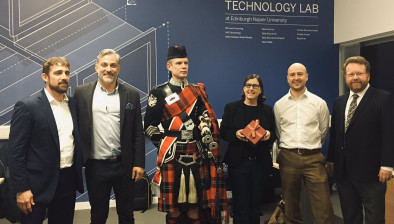Scottish transport projects ‘cost seven times higher’ than European equivalents

Major transport infrastructure projects in Scotland can cost up to seven times as much as similar schemes throughout Europe, researchers at Edinburgh Napier University have found.
Experts at the University’s Transport Research Institute (TRI) discovered that projects such as dualling the A9 and extending Edinburgh’s tram line were found to have been more expensive than those on the continent, but schemes here may also be built to last longer.
Factors which could impact the increased cost include fewer bids for Scottish projects and a larger numbers of subcontractors doing the work.
Researchers found that the £3 billion dualling of the A9 between Perth and Inverness, or about £25.4 million per kilometre, would be nearly eight times more than the £3.3m per km upgrading of the E22 road in southern Sweden.
The estimated cost of the planned tram extension to Newhaven of £30.9m per km would be three times the £10.6m per km for a line extension in Berlin.
A busway in the Swedish city of Malmo cost £7m to build, one fifth of that of the £40m Fastlink scheme, which is also shorter.
The researchers also found the 48km Borders line cost £294m to build compared to £26.4m for re-opening or refurbishing 31km of railway at Hessen in Germany.
TRI director Professor Tom Rye said the initial research had highlighted “striking” cost differences and cited greater bureaucracy in Scotland as another possible factor.
He told The Scotsman: “Many new transport projects are being built as we try to deal with congestion or regenerate local economies.
“However, a question that is rarely asked is whether we are paying more than our European counterparts to build such schemes.
“If we can learn lessons from Germany and Sweden on how to complete projects at lower cost, this will save money that can be used for more much-needed transport projects, or in housing, health and education.”
Rye and colleagues Christiane Bielefeldt and David Scotney chose German and Sweden for comparisons because of their similar design standards and labour costs to Scotland.
A Transport Scotland spokesman said: “The definition of costs can range from pure construction costs to those including design, land assembly and other preparation costs, like scheme promotion.”
“We must also recognise the variation in standards and legislation under which schemes are delivered,” he added.





















